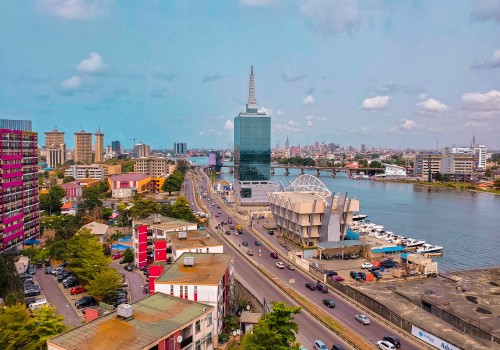
Understanding Nigeria's Business Environment: What You Need to Know
1 year agoOgechi Obasi
A healthy business environment is essential for economic growth. Good governance systems are required to achieve a good business environment, and the government of a country has the primary responsibility of ensuring this.
Measuring Business Environments
There are several theoretical approaches to measuring the business environment and competitiveness, such as the World Competitiveness Yearbook published by the IMD, the Business Competitiveness – Ease of doing Business Report published by the International Finance Corporation, and the Global Competitiveness Index (GCI) of the World Economic Forum (WEF). Of all these approaches, policy makers and investors generally regard the GCI as more reliable.
The GCI measures the following indices to ascertain a country’s ranking: Institutions, Infrastructure, ICT adoption, Macroeconomic stability, Health, Business dynamism, Innovation capability, Product market, Labour market, and Market size. These indices are further segmented into adequate supplies of quality infrastructure, stability of property rights, public accountability, and low levels of corruption or rent seeking, efficient service delivery, the rule of law, contract enforcement, and sound regulation.
Nigeria’s Business Environment
Nigeria is a country with a rich and diverse economy, and it is one of the largest in Africa. The country's business environment is characterized by numerous opportunities and challenges, making it important for entrepreneurs and investors to have a thorough understanding of the country's economic, legal, and cultural landscape to succeed.
One of the key aspects of Nigeria's business environment is its economic landscape. The country has a variety of sectors, including oil and gas, agriculture, manufacturing, and services. Nigeria is the largest producer of oil in Africa and the sixth-largest producer in the world. The country also has a growing middle class, making it a ripe market for consumer goods and services. Understanding the trends and opportunities within these sectors is crucial for entrepreneurs and investors who are considering entering the Nigerian market.
In addition to its economic landscape, Nigeria's business environment is also characterized by its regulatory framework. The country has a complex legal system that includes federal and state laws, and navigating the regulatory landscape can be challenging. Entrepreneurs and investors must be aware of the various permits and licenses required to do business in Nigeria, as well as tax and customs regulations. A strong legal environment can stimulate private sector activity by giving security and predictability to property rights, creating the regulatory stability necessary for long-term decision-making, and ensuring that capital and labor inputs are more effectively utilized.
Nigeria's business environment presents a number of opportunities for entrepreneurs and investors who are willing to navigate the market. The country has a young and growing population, a thriving middle class, and a rapidly expanding economy. With the right strategy, entrepreneurs and investors can successfully enter the Nigerian market and achieve long-term success.
Reforms for a Better Business Environment
Reforms are often needed to address policy, legal, and regulatory requirements that unnecessarily raise the cost of doing business, increase risks, or reduce competition. Business environment reform promotes the development of markets that encourage competition and enhance the effectiveness and sustainability of other development interventions. A conducive business environment is one of the prerequisites for economic growth.
The National Assembly Business Environment Roundtable (NASSBER) drives business reforms in Nigeria aimed at improving the business environment in line with Nigeria’s Economic Recovery and Growth Plan. Some of these legislative reforms include the Companies and Allied Matters Act 2020, the Petroleum Industry Act 2021, the Credit Reporting Act 2017, the Secured Transactions in Movable Assets Act 2017.
Our findings confirm, consistent with global patterns, that business environment legislations are significantly positive for output (GDP), employment, incomes and poverty reduction. NASSBER projects an output impact equivalent to an average of 6.87% of GDP over a 5-year period, on the passage and implementation of identified priority Bills in the business environment. The average annual growth in jobs is estimated at approximately 7.55 million additional employments, as well as an average of 16.42% reduction in Nigeria’s poverty rate. Over the projected 5-year period, these reforms may add an average of N3.76 Trillion to incomes (National Disposable Income was N85.62 trillion in 2014), equivalent to 4.39% of 2014 figures.
Conclusion
In conclusion, understanding Nigeria's business environment is crucial for entrepreneurs and investors who are considering doing business in Nigeria. By gaining an understanding of the country's economic landscape, regulatory framework, business culture, and risks and opportunities, entrepreneurs and investors can navigate the market successfully and achieve long-term success.
Ogechi is an analyst with NASSBER. Reach her on ogechi.obasi@nesgroup.org